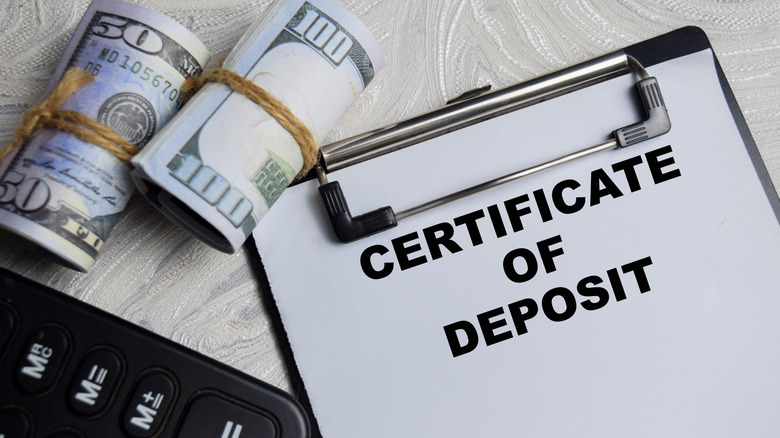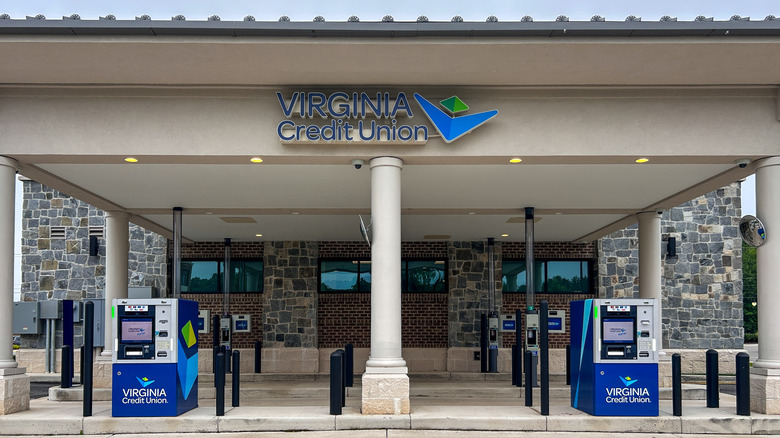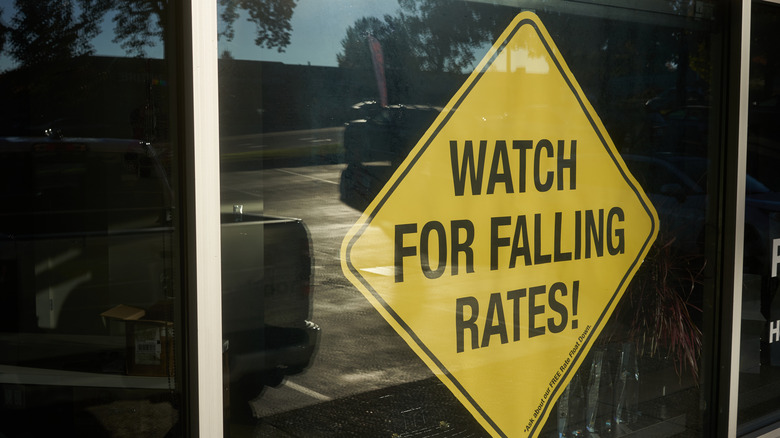How Much Interest You Can Make In 1 Year With $10,000 In A CD Savings Account
In the spring of 2022, the United Stated Federal Reserve started a cycle of increasing interest rates to combat the price inflation which manifested itself during the COVID-19 pandemic. While consumers requiring auto loans or home mortgages might not appreciate the new higher interest rates, one group was rewarded from this process: savers. For the first time in a long time, it actually made financial sense to park money in fixed income investments like a high APY savings account, bonds, or even a certificate of deposit.
Regarding the latter, a certificate of deposit, or CD for short, is a savings instrument that involves depositing a set amount of money at a financial institution for a set period of time in exchange for a guaranteed rate of interest. Technically, that period of time, called the term, can be as short as one month or as long as 10 years. That said, terms ranging from about three months to five years tend to be the most popular.
As of July 2025, the highest rates of interest available on a 12-month CD — which means tying up your money for an entire year — range from 4.35% to 4.50% annual percentage yield (APY), according to Investopedia. In simple terms, that means a $10,000 investment will earn between $435 and $450 in interest over the course of one year. However, before running down to your local bank to invest, there are a few tips and tricks you should know.
Don't forget about credit union CDs
First of all, the national average APY for a 12-month CD is a mere 1.62%, according to the FDIC. Finding significantly higher rates — such as enough to return $450 on a $10,000 investment after one year — will typically require seeking them from online banking institutions. With that said, there's always the possibility that a local brick-and-mortar institution is offering an attractive promotional rate, sometimes called a "CD special." However, you should definitely do your homework online first to make sure that whatever your local institution is offering is actually competitive.
Another consideration is that banks aren't the only place to shop for CDs. Credit unions also offer CDs and the savings rates at these not-for-profit institutions will often be higher than traditional banks. That said, credit unions typically require some kind of affiliation in order to join, so not everyone is eligible. These affiliations can include things like employment at a certain company, service in the military, or residing in a particular geographical area, just to name a few. It's also worth noting that a deposit of $10,000 may not be large enough to qualify for the very best interest rates. Indeed, the highest interest rates are sometimes reserved for deposits of $100,000 or more, called "jumbo" CDs.
Long-term commitment works both ways
If $100,000 or more is considered a jumbo CD, then what's the maximum you can invest? Like other types of bank accounts, CDs are insured by the FDIC (or NCUA in the case of credit unions) up to $250,000 per individual, in the unlikely event that a bank failure occurs. However, that $250,000 limit includes your entire balance in all accounts at the same institution, including any savings or checking accounts, so be sure not to accidentally exceed the insured limit.
CDs are also intended to be held to maturity and while it is possible to access your money early in case of an emergency, expect to pay some sort of early withdrawal fee, which varies by institution. So-called "breakable" CDs also exist that allow access to funds without penalty, but the yields aren't as attractive as their more conventional counterparts. Overall, CDs can be a safe investment with a guaranteed, respectable return — albeit one that lags the stock market over longer time periods.
With that said, certain high-yield savings accounts can offer interest rates that are comparable to the best 12-month CD rates available, without the long-term commitment. However, banks and credit unions can reduce the yield on these savings accounts at a moments notice — and rest assured that they will do this if short-term interest rates start to fall courtesy of the Federal Reserve.


